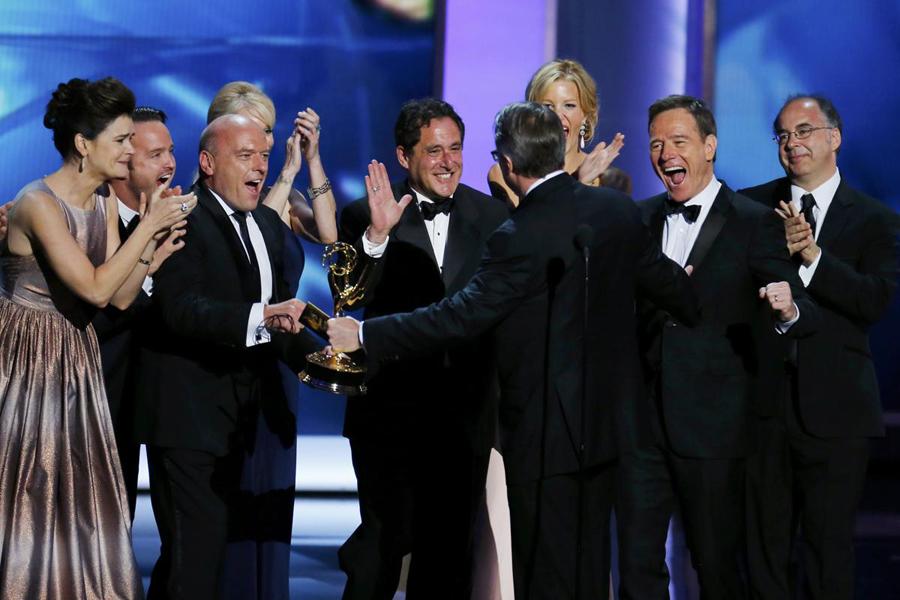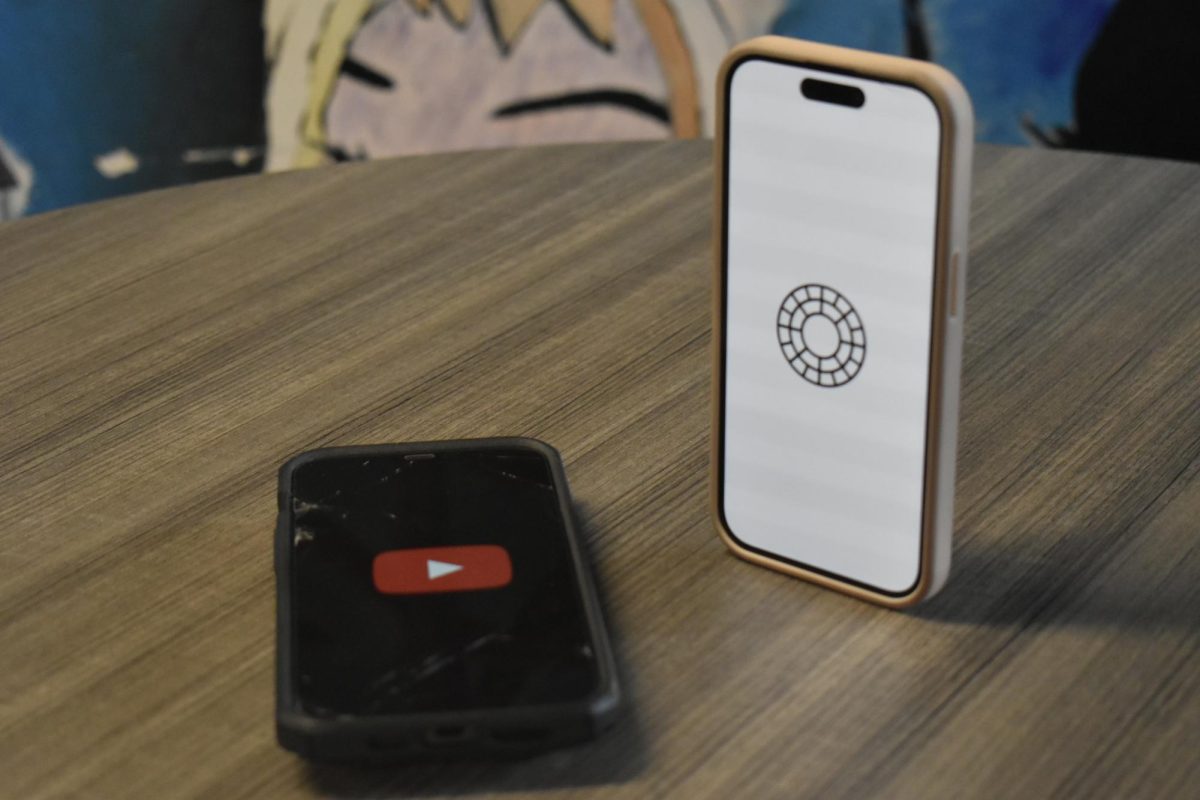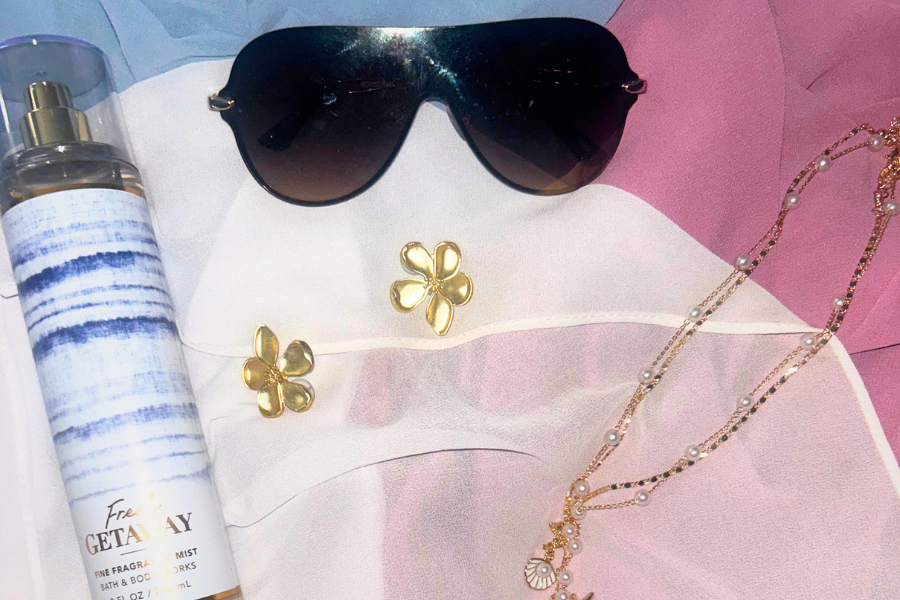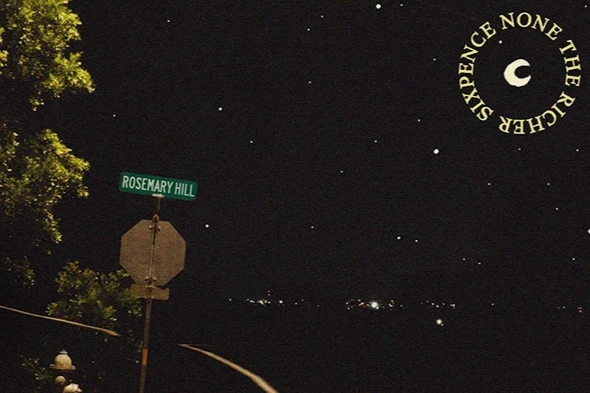The past year may have been, as host Neil Patrick Harris put it, ŌĆ£one of the greatest in television history,ŌĆØ but the ceremony celebrating it definitely was not.
It was an Emmy Award show filled with unexpected victories, unnecessary musical numbers and deathŌĆölots of death.┬Ā Between the remembrances of Jean Stapleton, Jonathan Winters, Gary David Goldberg, Cory Monteith and James Gandolfini, the actual ŌĆ£in MemoriamŌĆØ section and the tributes to the late “Homeland”┬Āwriter Henry Bromell, who passed away in March and whose wife accepted the award on his behalf, the ceremony was shot through with a sense of seriousness and mourning, as if all of the dark dramas that have led to television becoming such an interesting medium right now have bled through into the awards.┬Ā And thatŌĆÖs not even addressing the whole JFK assassination/Beatles sequence.
Despite the unavoidable self-aware song and dance number, Harris (who is usually a reliable and charming host) was a subdued presence for much of the show, feeding into the feeling that everyone on stage was faced with a giant, flashing sign reading, ŌĆ£hurry up.ŌĆØ
Yes, itŌĆÖs the golden age of television, but that doesnŌĆÖt mean the Emmys think we actually want to hear from or see these people, and so clips were skipped and the winners seemed to get a 10 second window before the music began playing them off.┬Ā While the actual award giving was unbelievably brisk, the material filling out the night played long and pointless.┬Ā Sure, Elton John is great, but why was he there, singing a song that was sort of ŌĆ£inspired byŌĆØ Liberace when we could be hearing more about actors and their nuances?┬Ā ItŌĆÖs an TV award show, yet it seemed to have very little to do with TV.
Some of the winners managed to make the most of their narrow allotment of time on stage regardless, though, like Julia Louis-Dreyfus, who won for Veep and who did a great bit with Tony Hale, a fellow winner, tagging after her the way his character Gary does on the series, holding her bag and whispering prompts in her ear.┬Ā The cleverness of the skit was counterbalanced only by the fact that a sizable chunk of viewers, having never seen the HBO comedy, surely had no idea what was going on and thought Anna Chlumsky, playing along in character from the audience, was actually caught texting during the speech.
Merritt Wever, who picked up an award for her role in “Nurse Jackie,” gasped out a charmingly shocked, very short speech, and Kevin Spacey did some Francis Underwood-style fourth wall-breaking, first with a speech in character during the intro and later as himself when he batted away the camera while Bruce Rosenblum and Kaley Cuoco spoke about the Archive of American Television.
Will Arnett and Margo Martindale were so much funnier joking about their new series “The Millers” than the show itself is, while Diahann Carroll spoke about diversity, even as this yearŌĆÖs winners were blindingly white.┬Ā Shemar Moore hung out in the bathroom or something serving as the ŌĆ£social media reporterŌĆØ and awkwardly chatting with stars pinned frozen in front of the camera like deer in front of headlights, seemingly uncertain as to what they were doing there and whether or not they were live on air.┬Ā The nation watched in awe as underdog Jeff Daniels chewed gum as he accepted his much-deserved award for best lead actor in a Drama series for his role in “The Newsroom” that he won over front-runner “Breaking BadŌĆÖs”┬ĀBryan Cranston.┬Ā Stephen Colbert handed his wife the best on-air complement when saluting her for being ŌĆ£so cruel and sexyŌĆØ after winning the award for outstanding variety series and breaking Jon StewartŌĆÖs 10 year long streak.
The words ŌĆ£golden age of televisionŌĆØ were actually uttered by someone during the night, but itŌĆÖs clear that how to serve that golden age in an award show is a daunting task that no one has really figured out yet.┬Ā ThereŌĆÖs just so much TV, and itŌĆÖs so niche and diverse, so why notŌĆ” a “Breaking Bad”– themed dance number thatŌĆÖs also a salute to choreography?┬Ā There were no multi-winners at the show, as the awards were scattered at random across different shows and networks, as has been the trend over the last few years.
It was great to see “Breaking Bad” pick up the win for outstanding drama, but maybe even more rewarding to see Anna Gunn get an award for her fine work playing the constantly maligned Skyler White.┬Ā And despite this being a historic year for Netflix in terms of its “House of Cards” nominations, the streaming site only got one win, for David FincherŌĆÖs directing, and he wasnŌĆÖt there to accept the award.
The most interesting aspect of the Emmys wasnŌĆÖt something that happened on screen at allŌĆöit was rather the choice the awards presented, going up against the second-to-last episode of “Breaking Bad,”┬Āthe series finales of “Dexter,”and “Copper,”┬Āthe season closers for┬Ā“Ray Donovan” and LifetimeŌĆÖs controversial hit “Devious Maids,”┬Āplus “Boardwalk Empire” and poor “Low Winter Sun.”┬Ā┬ĀThere are so many series demanding of our attention that an award show taking up the most jam-packed night on television seemed oddly presumptuous.┬Ā If the Emmys really are a tribute to whatŌĆÖs being done on the small screen, then they shouldnŌĆÖt be in direct competition with so many of the shows theyŌĆÖre lauding, including the one that won the nightŌĆÖs final prize.┬Ā Trophies are all well and good, but a better testament to how good ŌĆ£Breaking BadŌĆØ has been in this last arc is how many people flipped the channel to AMC at 8 pm.




![There are more than 20 open cardio machines at Crunch Fitness. I enjoyed the spacious environment at Crunch, a sentiment that was shared by sophomore Sanjana Daggubati. ŌĆ£[Going to] Crunch Fitness was the right decision because [it] feels more professional. CrunchŌĆÖs workers are laid back, but not to the point where they don't care,ŌĆØ Daggubati said.](https://pwestpathfinder.com/wp-content/uploads/2025/09/IMG_5242-1-1200x900.jpg)

![Various empty Kit Kat wrappers crowd the desk, surrounded by scoring sheets. While production of Kit Kat flavors in the U.S. is limited, Nestl├®, the owner of Kit Kat, manufactures hundreds of unique flavors in Japan, including the flavors ocean salt and passion fruit. ŌĆ£I thought there [were] some interesting flavors, and a lot of them were really unexpected,ŌĆØ senior Elle Levesque said.](https://pwestpathfinder.com/wp-content/uploads/2025/09/image-2.png)


![PantoneŌĆÖs selection of the 2025 Color of the Year is revealed: Mocha Mousse. Ceramics teacher Ashley Drissell enjoys this yearŌĆÖs selection. ŌĆ£Maybe itŌĆÖs the name but [Mocha Mousse] reminds me of chocolate and coffee. It makes me hungry. ItŌĆÖs very rich and decadent,ŌĆØ Drissell said.](https://pwestpathfinder.com/wp-content/uploads/2025/02/DSC_0015-1200x800.jpg)

